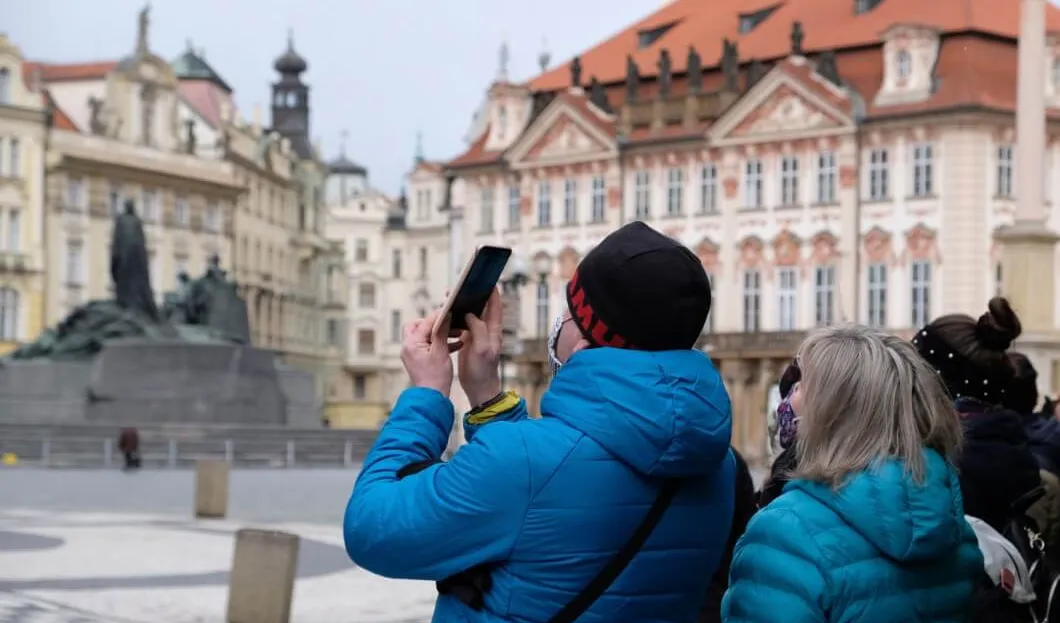
Not even the Czech Republic has dodged the hard blow of the coronavirus pandemic and its impact on tourism. It is the biggest crisis in the modern history of the country, and no one dares to forecast when the recovery will begin. In any way, the sector is in a great need of tourists.
Tourism experts have been able to accurately predict the volume of losses caused by the pandemic. The problem now is that the crisis has hit the industry in such a way that, despite the different possible recovery scenarios, it is unknown which sectors have the possibility of recover faster.
Last year, fewer than 11 million tourists stayed in hotels, guesthouses and other establishments, which is 50% less than in the previous year according to the Czech Statistical Office.
The measures taken against the coronavirus pandemic took a heavier toll on Prague than in the rest of the country. “International tourists simply did not show up,” said Pavel Vančura of the Statistical Office.
“In Prague, the fall in tourism was 73%, but if we talk about accommodation, the figures are even higher. The capital lost more than 13 million overnight stays in year-on-year terms”.
According to a report by consultants Cushman & Wakefield, the Prague hotel market has been hit the hardest in Europe with a fall of 84.6 percent in revenues per room. The occupancy rate decreased by 78.5 percent to just 16.6 percent. The average room price fell by 28.1 percent to CZK 1,716 a night.
David Nath of Cushman & Wakefield said that the Czech capital was a long-term favorite destination of investors. He said that major industry players were still interested in buying, renting or operating hotels in the city. Indeed, demand clearly exceeds supply, which is keeping hotel prices at their pre-pandemic level, Mr. Nath said.
During the temporary ease of restrictions in the summer, the industry showed a slight recovery, but once they were reintroduced for more than 120 days, it caused tourism to collapse for the rest of 2020.
Currently, the big question is when the restrictions are to be relaxed in such a way that travel is allowed, that airports restart operations more comfortably and, of course, that flights return.
BH Securities chief economist Štěpán Křeček said that there are two possible scenarios. The optimistic one suggests that the recovery of the industry can start in 2022. The other one is more pessimistic: the recovery will take many years to come.
Ivan Čech, director of the international airport in Pardubice, said that he believes that stabilizing air travel can take between three to five years. It will take long to recover from the coronavirus pandemic, so their job is to pave the way for when the air routes that passengers were used to before the crisis return, explained Čech.
“We are holding negotiations for the expansion of routes with airlines such as Ryanair and Swissair. We are also interested in resuming connections with Russia used by tourists visiting the Pardubice region”. Nevertheless, the country is still in need of tourists who are not coming.
The worst scenario is explained by the fact that the country’s airlines have always relied on business trips from company executives, rather than on economy travelers. This means that business class passengers have adapted to the restrictions and now hold meetings online, so they will not be back on the planes as quickly as the airlines would like.
To some analysts, one of the consequences of the pandemic will be a change in the way of traveling, at least in the coming years until life returns to 2019 conditions.










